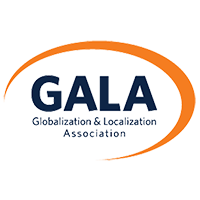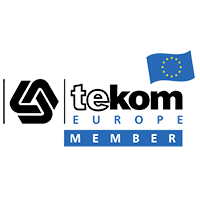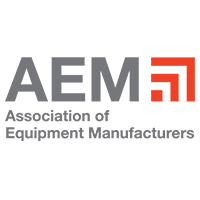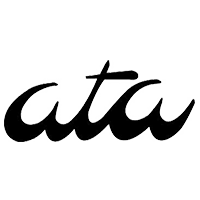Medical Device Companies’ Translation Needs
Perception Versus Reality: Medical Devices Companies’ Translation Needs
In June this year Nadège Young joined Argos Translations as Director of Operations. Nadège has been in the translation industry for over 20 years and most recently had been working for Boston Scientific. Since we are an LSP we obviously approach our interaction with medical devices companies based on our perception of what they need. As a result, I was interested in taking advantage of Nadège’s recent experience working in a large medical device company. I wanted to understand how our perception of what these companies need compares to the reality of these companies. For me in business this is always the biggest challenge. Every service provider should be trying to offer a service that really satisfies the needs of their clients (pretty obvious statement!). Unfortunately, the reality is that what we as service providers consider important for these companies is not always critical, while we sometimes miss identifying needs that are truly crucial. Nadège and I discussed many aspects, everything from the sales pitch to service delivery. What I found interesting was that in some cases, as a company, we had a good understanding about medical devices firms and their medical device translations needs, but in other cases we didn’t have it quite right…
So…… When I was approached by Multilingual to write this article, I thought it would be interesting to do a perceptions versus reality piece together with Nadège.
How important are quality systems and traceability?
Perception: Since the medical devices industry is so heavily regulated, we were quite sure that medical devices companies needed their vendors to have quality systems in place and would require full traceability through each step in their projects in order to conform to their own quality standards. When talking to such companies we often emphasized that we had systems in place that would allow them to know who touched their files during each phase. We definitely felt that it was important as a medical translation vendor to have quality standards in place that were similar to our medical devices clients and that is why we were certified not only for the EN 15038 translation standard, but, additionally, for the ISO 13485 standard, which is specifically for the medical devices industry.
Reality: It is indeed becoming key for Language Service Providers (LSP’s) to have ISO certifications and it is now a common line item on Request For Proposals (RFP’s). Some Life Sciences companies will not even consider a supplier without ISO certifications. Quality systems also play a big role in the supplier selection process and a review of these systems is often performed at the supplier site. More and more, medical devices companies are also auditing their LSP’s on a regular basis to ensure that their quality systems are maintained and continue to improve. The gap here is that many companies do not adapt their audits to the specific service of translation unless they have the expertise in the service itself. Having spent time on the client side, I can testify that it is very reassuring to a client when a supplier can spell out each task in a workflow, along with the resource that performed it, for any project given to the supplier. The system has to be able to demonstrate that the right workflow and the right resources were utilized for each specific project.
How important is training linguists on the products they are translating?
Perception: In our experience, one of the biggest challenges when translating highly specific content for the medical devices industry, is the need to work closely with our clients. We believe that the more training we can provide our linguists to help them understand the products they were working on the better. In some cases we even request that our clients do YouTube video product demonstrations that our linguists can access anywhere at any time. From our perspective, we feel that we need to have a partnership relationship with these clients and that they invest the time to share product knowledge with the linguists. On the one hand we are aware that this is time consuming on the client side, on the other hand true linguistic quality comes when translators understand all the intricacies of what they are translating and can see it context.
Reality: It would be absolutely great if all linguists could be trained on all products they are translating but the reality is that it does not happen a lot. Very large companies have so many products that it would be logistically and financially impossible. Of course, there are ways to minimize the effort and concentrate on the most important products or the products with the greatest sales. In my life in the industry, I have seen and been part of several product training sessions on site at clients’ facilities and the benefits are priceless when the right resources attend.
A couple of decades ago, information was not readily available on the internet and I remember taking a field trip to Harley Davidson with fellow translators to spend time in their shop with mechanics. We had a chance to identify parts and see how they work, take components apart and put them back together, working with real product experts. Another beneficial exposure to the products I attended, and recommend whenever possible, are client site tour of the manufacturing plant from Boston Scientific to John Deere. Being able to follow an assembly line and see the products being created first hand, from a stent to a tractor give the translators a valuable experience.
Unfortunately, in our modern time, this training and exposure to the products do not happen very often. The global make up of translation companies would make such events very challenging and costly. The upside is that with so much information available through the internet, there are ways to help our linguists understand the products. As Kevin mentions earlier, asking the client to participate via videos is asking a lot but they might have other training materials they might be willing to share. The LSP project manager can always do a little research and send relevant links to the translators.
I personally know some very dedicated linguists who will take the time to research products not familiar to them. However, the client’s collaboration is needed when products are new and not yet launched.
The next best thing after product training is glossary creation, approval and usage. It cannot be stressed enough that this is the first step to quality. — Product training or no product training, glossary creation should be part of every project. Whether the client pays for it or not, it will be beneficial for the supplier at every linguistic step. If the client can approve glossary terms with their own subject matter experts in country, it is a huge advantage. The only thing left is to ensure that the linguists will use these glossaries.
How important are translations for medical device companies about to enter new markets?
Perception: Whether medical devices companies are entering new markets for the first time or whether they are expanding into additional foreign markets, the perception we had was that translation was not the foremost thing on these companies’ minds. This is particularly true when you talk to companies that are expanding globally for the first time. There are many other things they need to consider apart from actual translations. First and foremost they are going to be trying to understand the regulatory requirements of the countries they are entering. They are going to be thinking about costs and how having a multilingual manual might change their needs with respect to packaging devices. For example, when you have your instructions in English everything might fit nicely into your package, but once you have a multilingual instruction manual (which is obviously thicker than the English one) you suddenly realize that because of translation and going global you need to rethink your packaging strategy as well.
In addition, companies entering new markets are going to be thinking about support and whether there should be local country support or regional support. Will they use a local distributor network? Whose budget will the medical translation belong to? These are just a few issues, but they illustrate that companies entering new markets (and particularly medical devices companies due to regulatory requirements) have a lot of issues to tackle and translation is only one of them. As a result, it is not surprising to us that the question of how to actually do the translations and what the needs are for a translation supplier are not high on their priority list. Thus we need to have patience. Medical devices companies will get to the “translation problem” in due course.
Reality: Since my role at BSC was directly connected to translation and localization services, I would say that for sure at BSC this was taken very seriously and was one of the key factors considered when entering new markets. In the last few years, translation and localization became an integral part of the planning. In my experience on the vendor side though, I definitely have noticed difference levels of importance placed on translation and localization based on the size of the company in question. The smaller the company the more likely it is that there is one department (and sometimes one person) managing all aspects of the international expansion. As a result in such cases the translation component is only one piece to the larger puzzle of how to move into new markets and becomes an afterthought.
How important is having your own TMS system?
Perception: Translation companies love to talk about their translation systems. I run a translation company and I know it’s true. I do it myself. We often want to differentiate ourselves by pointing out that our system does this and that, while our competitors systems have certain limitations. We spend a lot of time on positioning ourselves in terms of TMS systems. The reason we do that is we believe that medical devices companies (as well as other companies) believe that such systems are absolutely critical.
Reality: Medical devices companies and others who have their content translated are getting familiar with TMS systems as they are being pitched and given elaborate presentations about the magic systems. Some clients are talked into purchasing the TMS for themselves and end up managing the translations in house. These clients have to be ready for the effort and cost associated with the new process. New resources will be needed to manage the system and maintenance will be required.
Most clients however, believe that the TMS is the supplier’s responsibility, part of the core service they offer.
Medical devices companies that have been around for a long time have become familiar with TMS systems as their suppliers (and their competitors) are keeping them aware of improvements and new functionalities and features of their systems. As the clients are getting savvier about the systems, if they have someone or a department who owns the translation process, the LSPs will need to open up and expose these magic systems to be audited. In the US, it is becoming standard practice as mentioned earlier, to audit translation suppliers. These clients know it is crucial that the suppliers operate from a system linked to their quality system and they understand that such a system is a benefit to them from both a cost and quality perspective.
About Argos Multilingual
Our mission is to provide high-quality innovative language solutions to our customers while being the most respected business partner in the localization industry. We provide a full range of language translation services that cover all our clients’ needs.
Contact Us and find out how we can help you with your next translation project!




